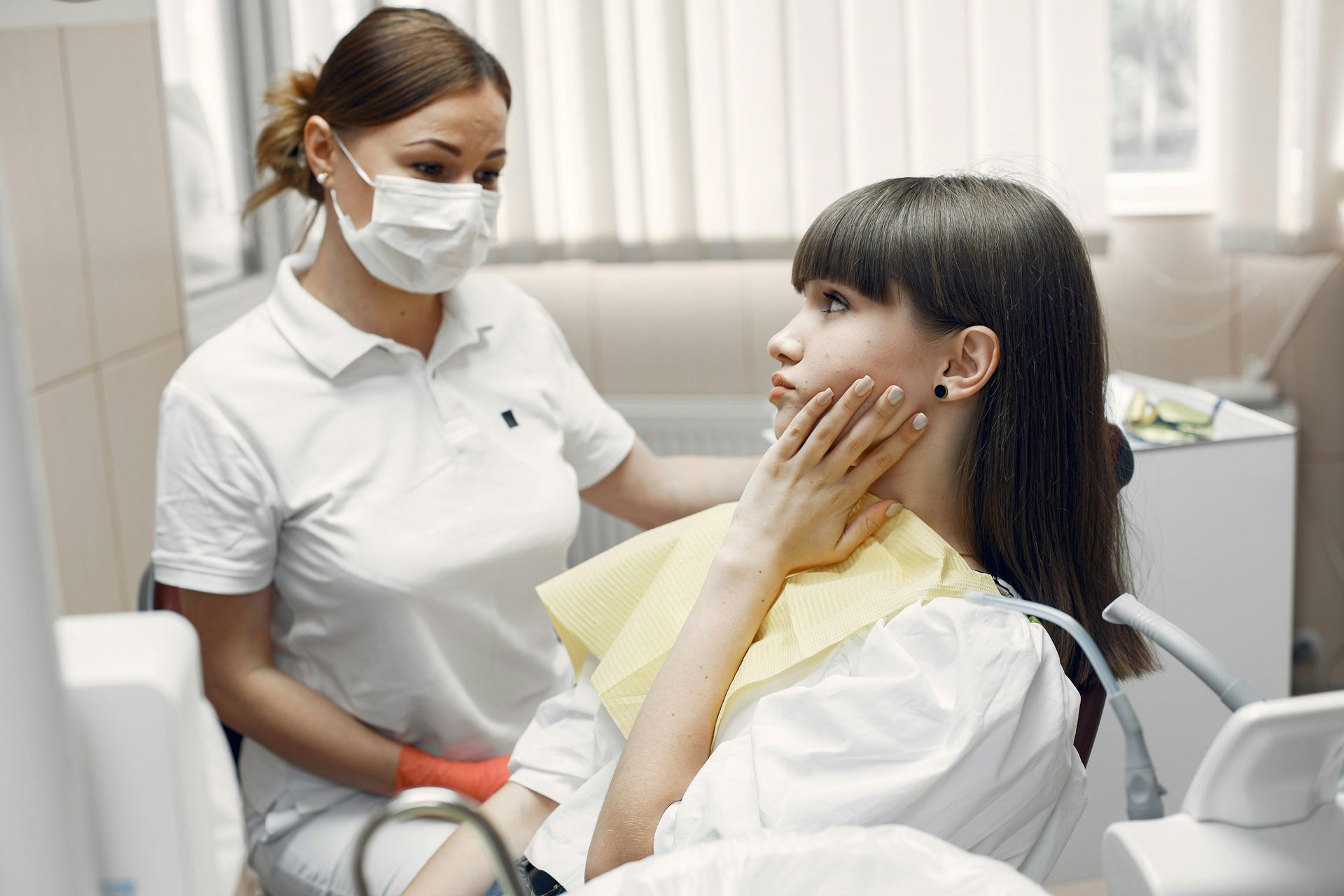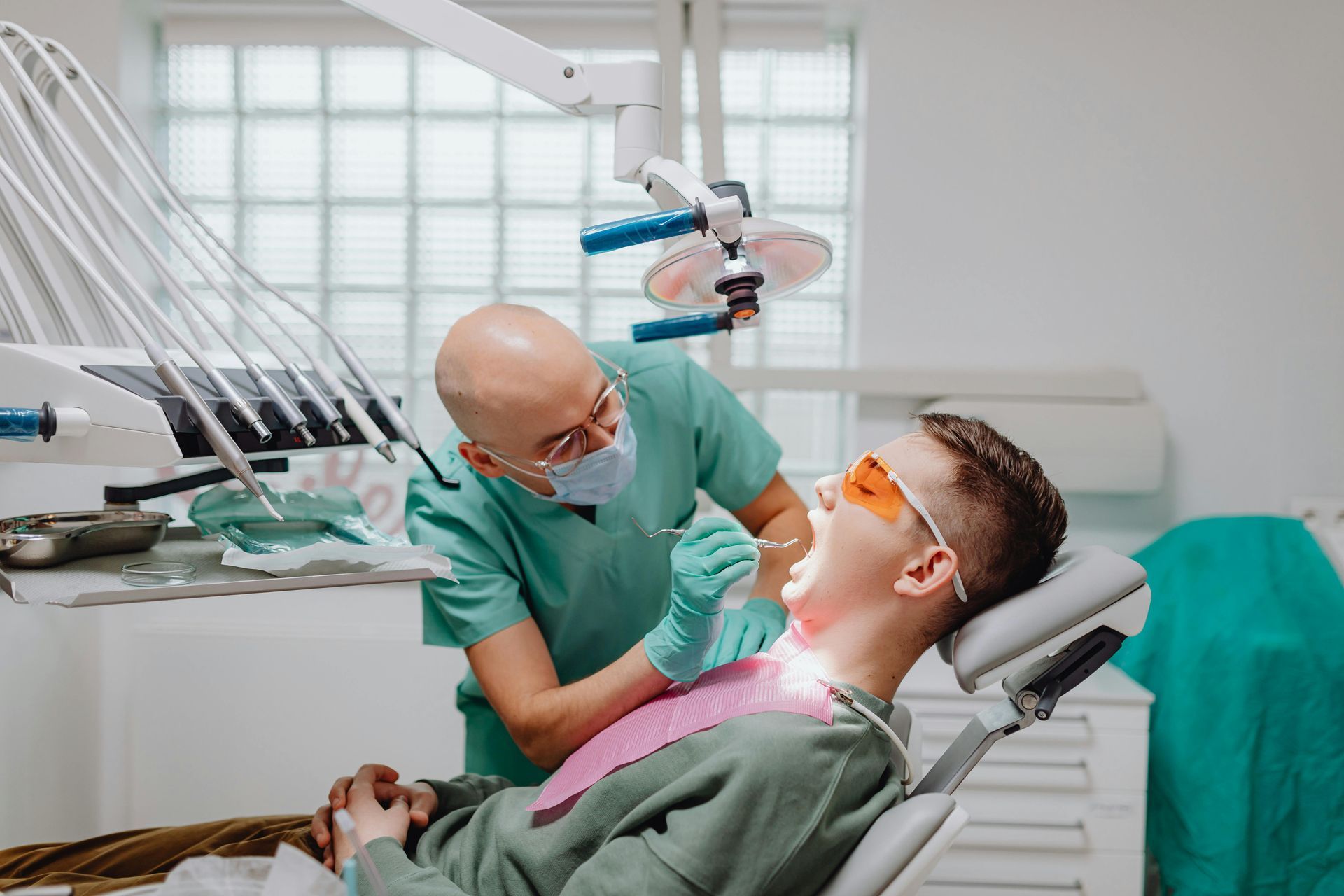Why Should You Not Ignore Your Routine Dental Check-up?
Skipping on your routine dental check-up causing oral health problems?
Have you ever wondered why your dentist recommends to re-visit the clinic every six months? Well, its time you know the reason behind it. Routine dental check-ups are crucial for long term maintenance of oral health for people of all ages. Usually, dentists recommend that the first visit of a child should be as soon as one year of age. This helps to build the foundation for the excellent health of teeth and gums. Moreover, it also impacts the overall well-being of the individual.
Routine dental check-ups have several benefits, such as early detection and prevention of dental diseases such as tooth decay, gum disease, and even periodontal problems.
If you are considering skipping your next routine dental appointment, you might want to read it further to weigh your options. In today’s article, we will discuss the importance of routine dental check-ups. Furthermore, we will highlight the benefits of a regular dental check-up.
What happens during a dental check-up?
Generally, a routine dental check-up is performed in two phases –
Examination
During the examination, Dr. Medina identifies tooth decay or abnormalities that may negatively affect the health of the teeth and gums. X-rays are also a part of the dental examination that determines the extent and location of the damage to the tooth, gums, and alveolar bone. (1)
Additionally, the dentist also evaluates the degree of plaque and calculus on the tooth surface. Dental plaque is typically a sticky layer of bacteria and debris that forms on the surface of the teeth. Improper oral hygiene practice can lead to the hardening of the plaque called calculus. Excessive accumulation of plaque and calculus usually initiates oral diseases.
After tooth examination, the gums’ health is evaluated using a periodontal probe to check the depth of the spaces between the teeth and gums. In a healthy mouth, the gums are firmly attached to the tooth surface. However, people with gum diseases may have deep pocket formations.
Lastly, the dentist evaluates the health of your throat, tongue, and other soft tissues in the mouth. Moreover, he may also consider extra-oral signs such as redness or swelling associated with the face, head, and neck.
Oral prophylaxis
Once a thorough dental examination is performed, the hygienist may proceed to clean your teeth. During this procedure, the hygienist uses an ultrasonic scaler to loosen and remove the mineralized calculus from the tooth surface. Moreover, dental professionals also clean the interdental spaces and areas which are hard to clean with a toothbrush.
After scaling, the tooth surface is polished using a gritty paste to remove the surface stains present on the tooth. Finally, every interdental space is flossed to ensure complete cleaning of the teeth. Ideally, it is best to visit a dentist every six months to maintain proper health and hygiene. (2)
What is the importance of routine dental check-ups?
A routine dental check-up is essential for the following reasons –
Early detection and prevention of dental diseases
Routine dental check-ups help the dentist to identify early signs of tooth decay and cavity formation. Furthermore, it helps to evaluate the patient’s oral hygiene status by looking at the amount of plaque and calculus formed on the tooth surface. (3)
Enhancing your self-esteem
Our smile plays a crucial role in creating a good impression on others, especially in your work environment. Regular dental check-ups help to restore and redefine the health status of your mouth. Moreover, it provides clean teeth and gums that enhance the appearance of your smile, making you look good.
Overall well-being
It is a fact that our oral health is directly linked with the overall health and well-being. There are clinical links between poor oral hygiene and diabetes or heart disease. Moreover, osteoporosis and cancer are also common conditions associated with poor oral health.
What are the benefits of a routine dental check-up?
Prevention of bad breath
Usually, poor oral hygiene hosts disease-producing bacteria in the mouth that affect not only the health of the teeth and gums but also causes bad breath. Sometimes bad breath also occurs due to the accumulation of food particles in the mouth that are hard to clean with a toothbrush.
Routine dental check-ups include professional teeth cleaning. This effectively cleans the teeth and gums by removing the food debris, plaque, and calculus in the mouth—thereby reducing the incidence of bad breath.
Protection from cavity, plaque, and calculus
Routine teeth cleaning from a dental professional help to identify the early signs of tooth decay and cavity formation. Moreover, it helps to remove the underlying cause for damage to the teeth such as bacteria and plaque that accumulates in the mouth periodically.
Protection from severe gum diseases
Usually, the calculus buildup in the mouth severely affects the health of the gum tissue. It not only leads to bacterial accumulation, which may loosen the gum tissue but also cause recession of the gums. One of the first signs of gum disease is bleeding and soreness in the mouth. (6)
Routine dental cleaning eliminates the calculus buildup and saves the gums from the adverse effects of calculus and disease-producing bacteria in the mouth.
Prevention of tooth loss
Extensive gum diseases, also known as advanced periodontitis, often leads to bone loss and increases tooth mobility. Routine professional cleaning and dental check-ups help to keep periodontal disease under control. Moreover, it helps to maintain the integrity and health of the teeth and gums for a long time.
Early detection of cancerous lesions
Routine dental check-ups help to identify the signs of developing oral cancer at its early stages. This greatly helps in treating the lesion successfully without affecting the health of the surrounding vital tissues.
Early detection of underlying abnormalities
x-ray examinations performed during routine dental appointments are a great way to get an insight at the underlying developing abnormalities such as tooth abscess, cyst, or tumors. Early detection of such lesions helps to limit the disease spread. Moreover, it prevents damage to the surrounding tooth and tissues. (7)
Altering bad habits
Dentists educate patients on practicing good oral hygiene and counsel them to avoid indulging in bad oral habits. Some of these habits include teeth grinding, jaw clenching, aggressive tooth brushing, and food habits.
The dentist may show you the effects of such habits on your oral health and provide you with solutions that you can use to overcome them effectively.
What is your responsibility after a dental check-up?
It is essential to take proper care of your teeth and gums by following regular oral hygiene practices. Following steps are the best way to achieve good oral health –
Brush your teeth for at least two minutes, two times a day. Also, use a fluoride toothpaste to allow remineralization of the enamel.
Floss after brushing teeth at least once in a day to remove the debris and plaque present between the teeth.
A mouthwash can contribute in controlling plaque formation around the teeth and gum line. Moreover, it provides a fresh breath.
Take away message
Regular dental visits are crucial to maintaining the health of your teeth and gums. Usually, a routine dental check-up involves detailed examination and professional tooth cleaning. Such measures help to detect dental diseases at early stages and prevent them from further damaging the tooth and gums.
At Don River Dental Clinic, our main goal is to help provide dental care to you and your loved ones in a safe inviting space. We also want to ensure that with routined check ups we can avoid dental emergencies and ensure that following a good oral hygiene routine will help you to stay healthy and happy.
Bade, Abhishek, 2020. "Why You shoud Not Ignore Your Routine Dental Check-up?. " Seaons-of-smiles.com
Available at: https://www.seasons-of-smiles.com/why-should-you-not-ignore-your-routine-dental-check-up.html

Persistent Toothache: When Pain Becomes Unbearable Experiencing a persistent toothache can be an alarming sign that requires immediate dental attention. Tooth pain might seem manageable at first, but when it escalates to severe toothache, it becomes unbearable and signals the need for prompt treatment. Warning Signs to Watch: Severe Pain: Pain that does not subside with over-the-counter pain relievers. Warm or Cold Sensitivity: Heightened sensitivity when eating or drinking hot or cold substances. Bad Taste: A constant bad taste in your mouth may indicate an infection. If you encounter any of these symptoms, it's vital to visit an emergency dentist. Immediate dental care helps maintain oral health and can prevent persistent dental emergencies. Thus, never underestimate the importance of promptly addressing a severe toothache. Extreme Tooth Sensitivity: Sudden or Chronic Extreme tooth sensitivity can be both sudden or chronic, causing discomfort and possibly leading to severe dental issues if not addressed promptly. Understanding the underlying causes is crucial for timely treatment. Here are key facts you should know: Common Symptoms: Sharp Tooth Pain: Often triggered by hot, cold, acidic, or sweet foods and drinks. Persistent Discomfort: Even when not eating or drinking. When to See a Dentist: Severe Pain: Signaling a possible serious dental issue. Toothache: Especially if it is frequent and intense. Loose or Broken Tooth: Emergency dental care may be necessary. Preventive measures, such as maintaining oral health with proper hygiene and avoiding overly acidic foods, can reduce the risk of sensitivity. If you're experiencing persistent sensitivity or any other dental emergencies, seek professional dental attention promptly to explore treatment options. Swollen or Bleeding Gums: A Sign of Trouble Swollen or bleeding gums can be a significant warning sign of gum disease, an oral health issue that requires prompt dental attention. Many might overlook minor bleeding during brushing, but if this symptom persists, it is essential to consult a dentist immediately. Gum disease, in its early stages, is known as gingivitis and can progress to more severe dental issues if left untreated. Here are some alarming symptoms to watch for regarding your gums: Persistent Swelling : Constant inflammation can be a precursor to severe gum disease. Frequent Bleeding : If your gums bleed regularly, even without brushing aggressively, it indicates an underlying issue. Bad Taste or Bad Breath : Persistent bad breath or a bad taste in the mouth signals bacterial accumulation, which may stem from gum disease. Immediate Measures to Take: Practice proper oral hygiene with thorough brushing and flossing. Rinse with warm water to reduce inflammation and bacteria. If you're experiencing these symptoms, it might be time to seek dental care. Early and timely treatment can prevent tooth loss, jaw pain, and more severe dental emergencies. Always prioritize oral health and consult with a dental professional to explore treatment options. Jaw Pain or Clicking: Potential TMJ Concerns Jaw pain or clicking might seem minor, but they can be potential indicators of Temporomandibular Joint (TMJ) concerns. Understanding these warning signs is crucial for maintaining your oral health. Common TMJ Symptoms: Persistent pain in the jaw area Clicking or popping noises when opening or closing the mouth Difficulty or discomfort when chewing A change in the way the upper and lower teeth fit together These symptoms warrant prompt dental attention to prevent further complications. An emergency dentist can assess the severity of these signs, providing timely treatment to relieve discomfort and prevent tooth root damage or additional dental issues. Potential Causes: Teeth Grinding - Often occurring unconsciously during sleep Arthritis - Affecting the temporomandibular joint Jaw Injury - Resulting from an accident or direct impact Maintaining good oral hygiene and regular dental care can help prevent TMJ disorders. If any of these symptoms arise, consider warm water rinses and consult a dental professional to explore treatment options. Timely treatment can mitigate severe pain and ensure better oral health. Always prioritize getting dental attention if you experience these warning signs. Loose, Cracked, or Knocked-Out Teeth: Act Quickly Loose, cracked, or knocked-out teeth are dental emergencies that demand immediate attention. Quick action can mean the difference between saving and losing a tooth. Loose Tooth in Adults: If you notice an adult tooth becoming loose, it’s a significant warning sign of potential gum disease or tooth root issues. Visit an emergency dentist without delay for prompt treatment. Cracked Tooth: A cracked or broken tooth exposes the sensitive tooth root and can lead to severe pain or even infection. Rinse your mouth with warm water, and contact your dentist immediately for dental treatment. Knocked-Out Tooth: Time is critical. If a tooth is knocked out, gently rinse it with warm water, place it back in the socket if possible, or submerge it in milk. Seek emergency dental care within an hour for the best chance of saving the tooth. Here's a quick checklist for handling these situations: Rinse gently with warm water. Recover the tooth or tooth pieces, if applicable. Seek timely treatment from an emergency dentist. These dental issues require swift action to ensure sustained oral health and effective treatment options. Never ignore the warning signs, as timely intervention is key. Dental Abscesses: The Hidden Infection A dental abscess is a serious oral issue that often lurks unnoticed until it becomes a dental emergency. It's a pocket of pus caused by a bacterial infection, typically forming inside the tooth or gums. If left untreated, it can lead to severe tooth pain and other complications. Warning Signs of a Dental Abscess: Severe Toothache: Persistent, throbbing pain that can radiate to the jaw, ear, or neck. Swelling: Noticeable swelling in the gums or face. Bad Taste: A constant foul taste or bad breath due to pus drainage. Fever and Malaise: Feeling generally unwell or feverish. Prompt dental care is crucial. Use warm water to rinse your mouth and reduce discomfort while seeking an emergency dentist for timely treatment. Ignoring warning signs can lead to more severe dental issues and possible tooth loss. Always prioritize oral hygiene to prevent such dental emergencies. Changes in Gum Color, Texture, or Shape: Periodontal Red Flags Changes in gum color, texture, or shape can be significant warning signs of gum disease and require immediate dental attention. Healthy gums should be pink, firm, and fit snugly around your teeth. Any deviations from this norm could indicate underlying dental issues. Possible Warning Signs: Red or Swollen Gums : Can indicate inflammation or infection. Bleeding Gums : Often a sign of gum disease, especially after brushing or flossing. Receding Gums : This could expose your tooth root and lead to sensitivity or even tooth loss. Soft or Tender Gums : May signal a severe stage of gum disease. Prompt treatment can prevent further complications such as tooth decay or even tooth loss. It's crucial to see an emergency dentist if these changes persist. Maintaining optimal oral hygiene and scheduling regular dental care appointments are key to preventing these periodontal issues.Act quickly if you notice any of these changes to ensure your oral health remains in optimal condition. Persistent Bad Breath or Metallic Taste: Unseen Dental Issues Experiencing persistent bad breath or a metallic taste in your mouth can be more than just a social inconvenience; these are often warning signs of underlying dental issues. A metallic taste can indicate issues such as gum disease or tooth decay. When bacteria accumulate due to poor oral hygiene, they can lead to infections, causing a sour or metallic taste. Similarly, chronic bad breath (halitosis) can suggest serious concerns like dental decay, gum disease, or even dry mouth—a condition where insufficient saliva leads to harmful bacteria growth. Check these potential signs: Persistent bad breath: Could be a sign of gum disease or tooth decay. Metallic taste: Might indicate oral infections or poor dental hygiene. Signs of dry mouth: Reduced saliva can lead to bacterial growth. In such cases, immediate dental attention is crucial. An emergency dentist can offer prompt treatment options to mitigate further damage, ensuring your oral health is restored with timely treatment. Make sure to ensure regular dental visits to address these concerns proactively and maintain optimal oral hygiene. Dry Mouth: The Silent Cavity Culprit Dry mouth, also known as xerostomia, might seem like a minor inconvenience, but it can be a silent trigger for more serious dental issues. Saliva plays a crucial role in maintaining oral health by neutralizing acids and cleaning food particles. When saliva production decreases, it increases the risk of tooth decay and gum disease. Warning Signs of Dry Mouth: Persistent thirst Trouble swallowing Bad breath Thick or stringy saliva A constant dry feeling in the mouth If you experience severe toothache or other symptoms like jaw pain or a bad taste that accompanies dry mouth, seek timely dental attention. An emergency dentist can provide prompt treatment to alleviate discomfort and prevent further dental damage. Remember, maintaining good oral hygiene and staying hydrated are essential steps in combating this silent cavity culprit. Seek dental advice if persistent issues arise, as timely treatment is crucial for minimizing long-term complications. Conclusion: Protecting Your Oral Health Through Awareness It is crucial to stay informed about the warning signs that you need to see a dentist immediately. Recognizing these signs can mean the difference between quick recovery and complicated dental issues requiring extensive treatment. Common Warning Signs: Severe Toothache Persistent Jaw Pain Bad Breath or Bad Taste Loose or Knocked-Out Tooth Severe pain from a Broken Tooth Dry Mouth Ignoring these symptoms can escalate into serious problems like tooth decay or gum disease, which might eventually lead to tooth loss or require emergency dental care. Ensuring prompt treatment for these symptoms can prevent long-term damage and more invasive dental procedures. Simple Tips for Oral Health: Maintain good oral hygiene by brushing and flossing daily. Rinse with warm water to alleviate discomfort. Schedule regular dental check-ups. Awareness is your first line of defense in protecting your oral health. By staying vigilant and seeking timely treatment, you safeguard not only your teeth but also your overall well-being. Prioritize dental care to ensure a healthy, confident smile. At Don River Dental we give you the best tips . If you are experiencing any symptoms or pain please feel free to call us at (416) 901 - 9292 and someone from our team will be happy to answer any questions and schedule an appointment as soon as possible. We offer safe soothing dentistry in North York.











